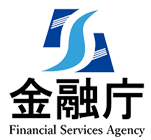List of Brokers with FSA (Japan) Regulation
The Japanese Financial Services Agency (JFSA) or commonly known as the FSA (Japan) is an international organization responsible for protecting market participants and the stability of the local financial system in Japan. As this regulator develops global standards for anti-money laundering, the JFSA's influence extends beyond Japan. The JFSA is also a member of the Financial Action Task Force (FATF).

| Established | : | 2000 |
| Country | : | Japan |
| Website | : | https://www.fsa.go.jp/en/index.html |
| Total Brokers | : | 6 |
Scroll for more details
FAQ
What does JFSA regulated mean?
Being regulated by JFSA (Japan Financial Services Agency) means operating under the standards of a Japanese financial regulator. Founded in 2000, JFSA is an independent governmental supervisory body with a main priority of JFSA to regulate the systems of financial service in Japan that include banks, securities and exchange markets, financial institutions, insurance companies, forex brokerage firms, etc.
JFSA bans any overseas broker to operate in Japan. To ensure this policy, the FSA has partnered with ASIC of Australia to prevent Australian Forex brokers from offering their services to Japanese traders. The FSA is also considered to be collaborate with CFTC, NFA, CySEC, and FCA to prevent forex brokers regulated in the US, European Area, and the UK to enter the Japanese financial market.
The agency has also modified the terms and conditions of forex trading which radically put a limit on the maximum leverage offered to clients. However, it is important to note that JFSA protect clients against broker insolvency and other broker issues through the Japanese Investor Protection Fund. All JFSA-regulated forex brokers are pushed to fulfill requirements that enable them to withstand all market eventualities like segregated accounts and other clients' protection schemes.
What is the main purpose of JFSA?
The FSA of Japan is responsible for maintaining the integrity of the Japanese economy by actively monitoring day to day performance of financial companies. The regulatory policies of financial companies in Japan are determined directly by the government. JFSA is widely known to be proactive in changing the terms and conditions of regulations to ensure that the country can tackle the volatility of the global financial markets.
Aside of being capable of banning any foreign brokers to enter Japan, JFSA requires a highly complicated and tedious process when a forex broker proposes to acquire its valid license. It practically guarantees that only high-quality brokers can operate under the JFSA.
The strict regulatory procedures and constant supervision ensure all brokers to adhere to the existing rules and put them at the risk of facing serious consequences should they indulge in any financial frauds. In the events of certain cases that put a broker against its clients, JFSA provides an opportunity for both sides to challenge a verdict in court and has the right to contact higher authorities to inform them of any wrongdoings from either side.
If you are interested to open an account in one of the brokers in the list above, make sure to try the forex demo account before proceeding to register in the live account.
Additional FAQ
What is the responsibilities of JFSA?
Located in Tokyo, the Financial Services Agency of Japan (JFSA) is the regulatory authority responsible for:
- authorizing and supervising various financial institutions in Japan, including banks, trust banks, trust companies, funds transfer and settlement service providers, insurers, securities firms, investment advisors, asset managers, and funds
- conducts inspections, exercises supervision, and promotes transparency in the financial system
Continue Reading at 6 Best Forex Broker Regulators in the World
What are the regulations for offline forex trading in Nigeria?
The foreign exchange transaction activity in the offline market is supported by law. Some of these include the Central Bank of Nigeria Act of 1958, the Foreign Exchange (Monitoring and Miscellaneous Provisions) Act of 1995, the Exchange Control Act of 1962, the Banks and Other Financial Institutions Act of 2007, and the Investments and Securities Act of 2007.
Continue Reading at Is It Safe to Trade Forex in Nigeria?
What should we do if the broker's regulation is still "in process"?
Some brokers might claim that they are in the process of applying for a license or a license extension. But in reality, not all brokers are true to their words. Some of them don't actually apply for any license and only use those words to steal the clients' funds. Even if the license is indeed "in the process", the broker's still unregulated during that time.
Continue Reading at Forex Regulation Insights: Defining Your Broker's Status
How to check a broker's regulation?
Here are the steps on how to check if a forex broker is regulated:
- Check the broker's website.
- Visit the regulatory agency's website.
- Contact the regulatory agency.
Continue Reading at How to Avoid Forex Broker Scams
Broker Categories
Minimun Deposit
Payment
Country
Established
Instruments Traded
Features
Trading Platform







